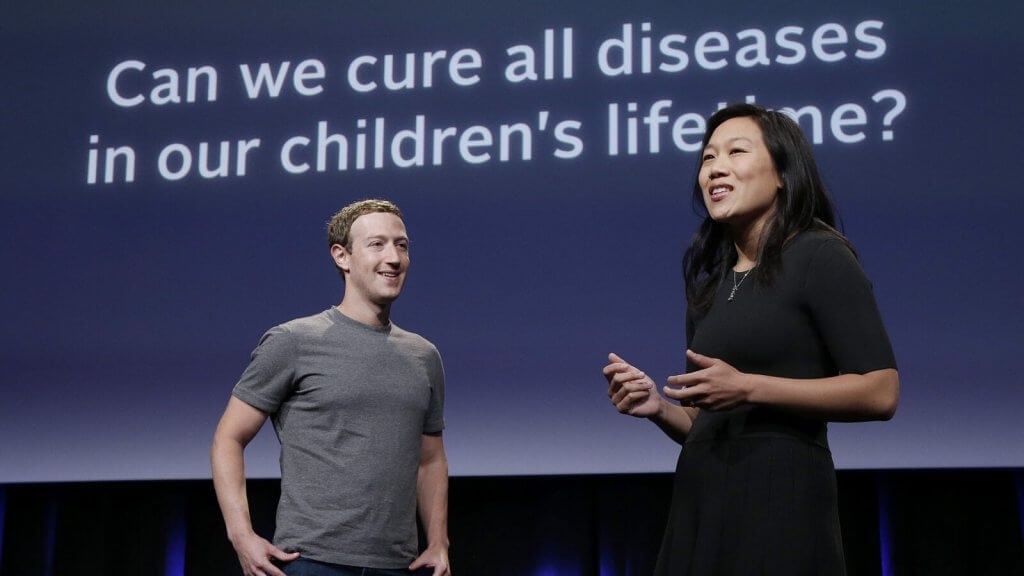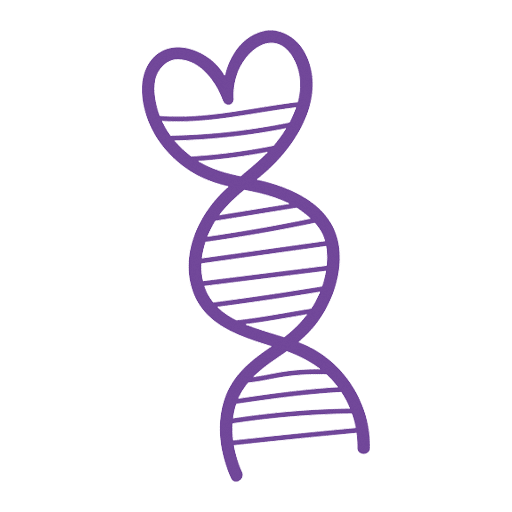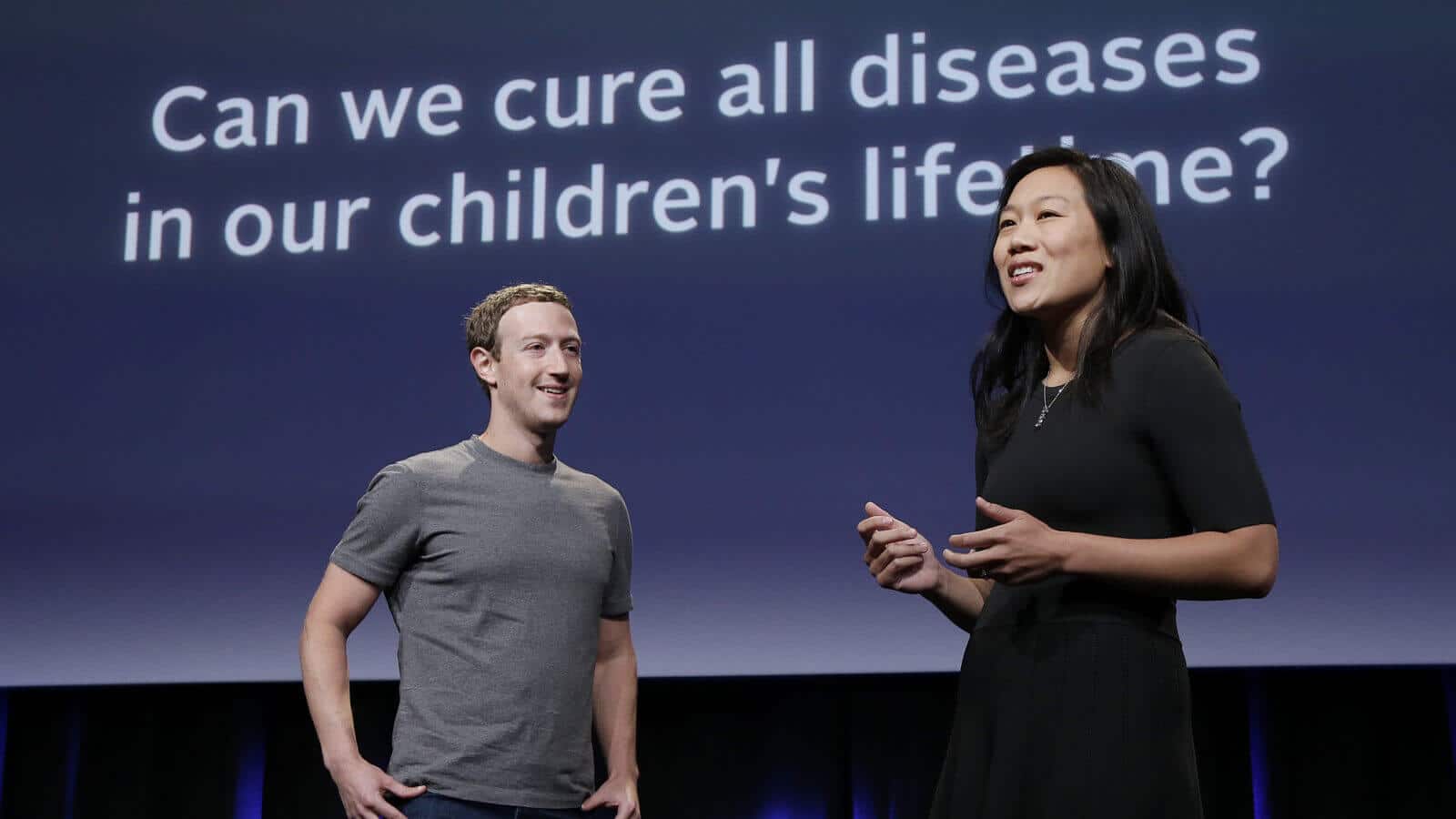Originally posted on STAT by Rebecca Robbins on February 3, 2020
SAN FRANCISCO — When Facebook founder Mark Zuckerberg and his spouse Dr. Priscilla Chan in 2016 vowed to get all diseases under control by the end of this century, they took on a challenge that seemed impossibly daunting in terms of science — and in terms of raw numbers. After all, there are thousands of medical maladies, including some 7,000 rare diseases.
Today it is no less daunting. But on Monday, the couple’s philanthropic vehicle announced a set of grants that executives there hope will create a model for tackling any rare disease: financing patient-led groups, and giving them training and resources.
The 30 recipients, all focused on advancing research in a rare disease, will each receive $450,000 from the Chan-Zuckerberg Initiative, along with those additional resources, over two years.

Mark Zuckerberg and Priscilla Chan.
JEFF CHIU/AP
In a phone interview with STAT, Chan, a pediatrician, said that her own experiences in the clinic have shaped her views about the importance of elevating the perspective of patients. She described feeling stuck and embarrassed when families would come in with a child with a rare condition that she couldn’t even identify using the usual means — until she started asking the families to lead the way.
“Eventually, that was the smart way to work: to actually refer back, learn from the patients about how to best take care of them, and what worked and what didn’t work, because there was no central body of knowledge,” said Chan, who left full-time medical practice to lead CZI.
The funded groups include the Hermansky-Pudlak Syndrome Network, focused on a hereditary disorder that causes albinism, visual impairment, and prolonged bleeding; Project 8p, targeting a chromosomal disorder that impairs physical and mental abilities; and the NEC Society, which works to prevent an intestinal disorder in infants known as necrotizing enterocolitis.
“We realize that’s only 30 groups out of 7,000 diseases,” said Tania Simoncelli, CZI’s head of science policy who is leading Rare as One, as the funding program is called. “But if we can actually work with these groups to figure out the model, figure out what’s generalizable — then anyone can do this.”
It won’t be easy. Many drug companies with orders of magnitude more money than the funded patients groups have been foiled by the challenges of taking on rare diseases. In the past, even when patient groups have succeeded in spurring research into their condition, that hasn’t always translated into a new therapy. And when new therapies do materialize, even the most meaningful advances are often treatments that lessen the severity of a disease, not cure it.
The funding for patient groups is the latest project to come out of CZI’s science initiative, which was launched in 2016 with a budget of $3 billion over a decade — and a pledge “to cure, prevent or manage all diseases within our children’s lifetime.” So far, the science initiative has focused on funding basic research and tools.
All the money comes from Zuckerberg and Chan, who set up CZI as a limited liability company and have funded it by selling several billion dollars of Facebook stock over the past few years. CZI also funds initiatives in education, justice and opportunity, and local issues.
CZI had originally planned to fund about 10 patient groups when it put out a call for applications last year. But it decided to triple the grants after it received 287 letters of interest from patient groups in the first round of the application process.

DDX3X Foundation co-founder and working mom Liz Berger plays with her daughter Lily Marks, who was diagnosed with DDX3X syndrome.
The groups that CZI decided to fund are all tax-exempt nonprofit charitable organizations, and the vast majority of them are very small and do not have any paid staff, Simoncelli said. Many of them are run by patients themselves, or in the case of pediatric rare diseases, the parents of a child diagnosed with the condition.
While the funded groups have discretion in how they’ll use their budgets, many of them will be hiring staff. All of the groups will be required to convene an international scientific conference to bring together patients, researchers, and clinicians. The idea is to rethink the traditional process by which patient groups fund research: like the National Institutes of Health, they put out a request for proposals and try to fund the best lab that applies. The hope is that these conferences will allow researchers and patients to more strategically identify the right research priorities at the right time.
In addition to giving the groups money, CZI will pair them with patient group mentors and scientific advisers. It will also host monthly webinars to help the groups strategize about things like fundraising and identifying the right researchers who study their disease or a related area.
CZI wants to help the groups build technology infrastructure to perform tasks such as designing their websites and organizing their contact lists. The goal is to build what’s as a “tech stack” of tools to fulfill those needs. Simoncelli said her team is working closely with Dr. David Fajgenbaum — a researcher and patient advocate who started a group for his own rare disease on the boundary between cancer and an autoimmune disorder — to better understand what tech tools have worked for his organization and how CZI might offer them to its cohort of patient groups.

DDX3X-Related Neurodevelopmental Disorder – Research Paper
Learn more via the paper here. GeneReviews® chapters are owned by the University of Washington. Permission is hereby granted to reproduce, distribute, and translate copies of content materials for noncommercial […]
Continue Reading
Chan Zuckerberg Initiative to Fund 30 Patient Groups, Aiming to Build a Model for Tackling Rare Disease
Originally posted on STAT by Rebecca Robbins on February 3, 2020 SAN FRANCISCO — When Facebook founder Mark Zuckerberg and his spouse Dr. Priscilla Chan in 2016 vowed to get all diseases […]
Continue Reading